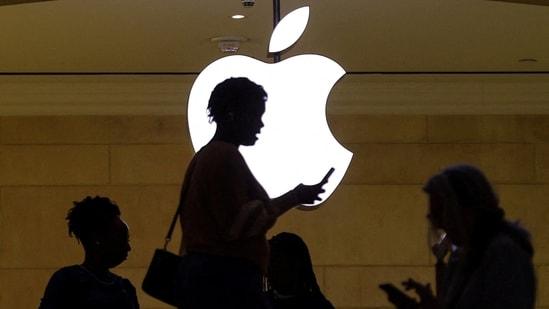Apple Closes Dalian Store in Rare Move for China
In a move that’s raising eyebrows across the tech and retail world, Apple Inc. has announced it will shutter its store at Parkland Mall in Dalian, China. This marks the first time the iPhone giant is closing a retail outlet in the country, a market it has long considered critical to its global strategy.
The decision, which Apple links to changes in the shopping center itself, is also reflective of economic pressures in China and evolving shopper behavior. The closure is scheduled for August 9, and while it might seem like a single store in a large portfolio, it carries larger implications.
“We Have Made the Decision to Close Our Store There”
“We’re always focused on providing an exceptional experience for all of our customers both online and at more than 50 Apple Store locations across Greater China,” Apple said in a public statement on Monday. “Given the departure of several retailers at the Parkland Mall, we have made the decision to close our store there.”
This statement helps frame the closure not as a retreat from China as a whole but rather a local adjustment. Still, it’s the first time Apple has taken this step on Chinese soil, giving the story a level of significance uncommon for store closures in the company’s retail history.
Timeline of Events
- Early 2024: Apple opens a retail location in Anhui Province, China.
- July 26, 2024: New Apple store opens in Osaka, Japan.
- August 9, 2024: Scheduled closure date of Apple’s Parkland Mall store in Dalian.
- August 16, 2024: Scheduled opening of a new location in Shenzhen’s Uniwalk Qianhai.
Why Parkland Mall?
Apple cited shifting conditions at the shopping center as the primary reason for the shutdown. Parkland Mall has been dealing with noticeable instability. Several international luxury and fashion retailers, including Coach, Sandro, and Hugo Boss, have exited in recent years. Ownership changes and reduced foot traffic may have further pushed Apple to reassess the value of staying.
The company maintains another Apple Store in Dalian—about 10 minutes from Parkland—at the Olympia 66 complex, which will continue operations.
Economic Winds in China
Apple’s move is set against a wider economic backdrop. China is facing a mix of deflationary pressure, sagging consumer spending, and volatile property prices. None of this helps retail growth. Retail sales have missed forecasts, and home prices dropped more than expected in June.
Could this be part of a much broader pullback? Perhaps not. Apple continues to invest in the region, but selectively. It seems the company is taking a more precise approach regarding where and how it operates its physical retail presence.
Sales Slump Adds Pressure
During the second quarter, which ended March 29, Apple’s revenue in China slid 2.3% to $16 billion. While that remains a massive figure by any standard, it fell short of analyst expectations by nearly $800 million. It’s not catastrophic—but it’s not nothing, either. And for a company with Apple’s attention to detail, every dollar missed is a signal worth interpreting.
Strategic Shifts in Apple’s Global Retail Plan
Though the Dalian closure is noteworthy, it’s only part of a more nuanced pattern Apple is carving. It’s not shrinking everywhere. In fact, Apple’s retail map is still growing:
- In January, the company opened a store in Anhui, China.
- The new Shenzhen store opens this August, just a week after the Dalian closure.
- Expansion is underway in the United Arab Emirates, Saudi Arabia, India, and the U.S., including cities like Detroit and Miami.
- Apple debuted its first Malaysian store last year.
At the same time, older locations are being scrutinized with increased intensity. Plans to shut down a store in Bristol, UK, were revealed the same day as the Dalian announcement. Other closures include Michigan’s Partridge Creek and Hornsby near Sydney. It’s a recalibration, not a retreat.
Selective Strategy and Real Estate Decisions
The tech giant is becoming more discerning when it comes to renewing leases. Aging locations or underperforming malls—regardless of the city or country—are under review. Apple is also focusing more on the digital experience, aiming to expand its online retail store, particularly in emerging markets like India and Saudi Arabia.
So, while the Parkland Mall store is on its way out, Apple shows no signs of abandoning China or stepping back globally.
Community Response
Locals in Dalian appeared surprised by the news. The Parkland Mall location has been around long enough to become familiar, especially to younger shoppers and tech enthusiasts. On Chinese social media, some users questioned the move, asking whether the closure hinted at bigger issues or just noise around one mall.
Others took a different view, pointing out that the Olympia 66 store offers a newer environment and is easily accessible. “We’ll just go there, that one’s nicer anyway,” one user commented online, echoing a sentiment that perhaps Apple is simply consolidating in smarter ways.
The Employee Factor
One piece of good news: staff at the closing store won’t be left behind. Apple confirmed that those affected will be given a chance to transfer to other retail roles. That includes either staying in Dalian or moving elsewhere in the country. The company has usually been careful in such transitions, so that’s… reassuring, at least for now.
What’s Next?
As markets shift and consumer habits evolve, Apple seems determined to stay agile. The Dalian closure may stand out today, but it fits within a broader story. One of adjusting to retail realities, country by country, even store by store.
For Apple watchers and analysts, it’s another data point. And for consumers? If you’re in Dalian and want your Apple fix, you’ve still got options—just head to Olympia 66, or perhaps, explore online.
Retail is changing, and even the biggest brands are being forced to respond. One closure may not tell the whole story, but it does whisper something about what matters to Apple now—and what doesn’t anymore.

